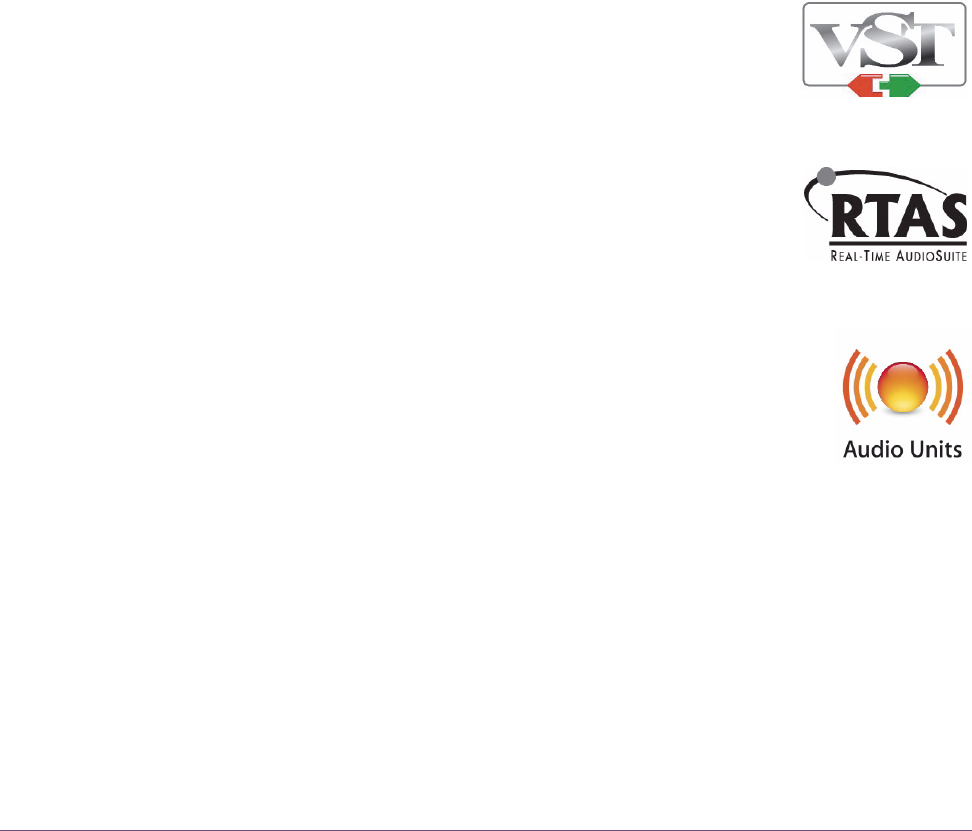Instruction Manual
Table Of Contents
- UAD System Manual
- Table Of Contents
- Introduction
- UAD Installation
- UAD System Overview
- My.uaudio.com
- Using Multiple UAD Devices
- UAD Meter & Control Panel
- Using UAD Powered Plug-Ins
- Tempo Sync
- UAD Delay Compensation
- UAD-2 SOLO/Laptop
- UAD-2 Satellite
- History
- Index

UAD System Manual - 34 - Chapter 3: UAD System Overview
Each host application has its own set of system requirements. In addition to
the UAD-specific system requirements, the host computer must meet the host
application system requirements.
Because the host application environment is integral to the UAD system but is
completely out of our control, we cannot claim compatibility with all hosts that
may support use of the UAD plug-in formats. See “Supported Hosts” on
page 16 for complete details.
Plug-In Formats UAD Powered Plug-Ins includes support for VST, RTAS, and Audio Units
plug-in formats. These formats define the software protocols that the host ap-
plication uses for plug-in processing.
UAD Powered Plug-Ins operations are (for practical purposes) functionally
identical in all three plug-in formats. The format of the installed UAD plug-in
files are specified during UAD software installation.
VST
The VST (“Virtual Studio Technology”) plug-in format is de-
veloped by Steinberg and is supported by various Win-
dows and Mac host applications.
RTAS
The RTAS (“Real-Time AudioSuite”) plug-in format is devel-
oped by Avid and is supported by Pro Tools host applica-
tions on Windows and Mac platforms.
Audio Units
The Audio Units (“AU”) plug-in format protocol was developed
by Apple and is supported by various host applications on the
Mac platform only.
Audio Interface The audio hardware input/output (“I/O”) interface is how audio signals get
into and out of the host computer. An audio interface is a hardware+driver
device that can have analog or digital I/O, or both. The interface is usually
where the analog-to-digital (“A/D”) and digital-to-analog (“D/A”) audio con-
versions take place. Universal Audio’s Apollo is an audio interface.










